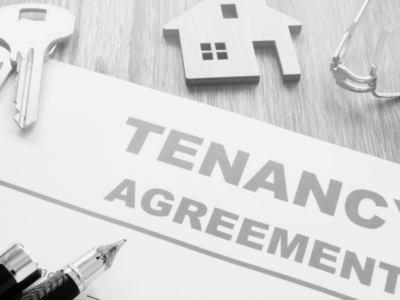Leighton Baldwin, expert in commercial property and associate, at law firm BLM explains what the options are for commercial landlords during the Covid-19 pandemic.
The most recent measure introduced by the Government in an attempt to strike the balance between supporting the interest of landlords and tenants during the Covid-19 outbreak was to temporarily ban the use of statutory demands made between 1 March 2020 and 30 June 2020 as well as winding up petitions presented from Monday 27 April to 30 June.
This was in responses to a number of landlords using the insolvency procedure as means to exert pressure on tenants to pay rent in view of the Government suspending a landlord’s right to forfeit for non-payment of rent until 30 June 2020. These measures also seek to prevent landlords from using the Commercial Rent Arrears Recovery procedure unless they are owed 90 days of unpaid rent and from using ‘aggressive debt recovery actions’.
The Government has said that it is actively monitoring the impact on these measures on commercial landlord’s incomes and their payment liabilities to lenders.
Landlords are lobbying the Government to implement a rent-support scheme (the “Furloughed Space Grant Scheme”), which would involve it paying a proportion of fixed property costs of businesses affected by COVID-19. This is similar to schemes that have been implemented in other parts of Europe. Whether such a scheme will be implemented remains to be seen, particularly in view of speculation that lockdown measures may soon be relaxed.
Whilst the measures currently in place have rendered landlords somewhat toothless in the steps they can take in forcing tenants to pay rent, it should be remembered that there is unlikely to be anything within a lease that entitles a tenant to refuse to pay rent or entitles them to a rent suspension. Nor is there anything at common law, or in the recent Government announcements that allows them to do so.
Although this is of little comfort to landlords who are juggling with cash flow issues and lending commitments, it does mean that tenants must still come to the table to seek a resolution that is satisfactory to both parties.
Current options available to a landlord
It can probably be assumed that ‘aggressive debt recovery actions’ would include issuing proceedings for rent arrears. Although this has not yet been tested in court, and the Government has not put any legislation in place to prevent it, it’s fair to assume a court could be sympathetic to a tenant whose business has been affected by Covid-19.
There is nothing to prevent a landlord pursuing a guarantor under a lease and nothing in the legislation that suggest that they are afforded the same protection from aggressive debt recovery actions as tenants. The landlord remains able to draw down on a rent deposit, though consideration may have to be given on a tenant’s ability to ‘top up’ the deposit and the time allowed for them to do so.
The lease may contain a “keep-open clause” which prevents a tenant from closing their premises. It is well established (in England and Wales) that only in the most exceptional cases will the courts compel a tenant to open the premises under keep-open provisions and that damages are deemed a suitable remedy (which in themselves are difficult to substantiate as the landlord must show that it has suffered loss). The lease may also contain an obligation on the tenant to comply with statute, and a court is likely to give more precedent to the tenant’s requirement to comply with statute than to comply with the covenant to keep open.
Future options
In the event that the Government does not extend the suspension, then as of 30 June 2020 all steps, including forfeiture, will be available to the landlord.
The Government has confirmed that any correspondence between the landlord and tenant during the suspension period will not constitute the landlord waiving the right to forfeit. The landlord will therefore be entitled to forfeit for the June quarter rent if that is also not paid, as well as the March quarter, leaving the tenant having to pay 6 months’ rent if they wish to seek relief. The landlord will have to be careful once the June quarter payment falls due and the suspension if lifted to avoid anything which could be deemed as a waiver of their right to forfeit.
If the Government don’t announce any further changes the insolvency options for landlords will also become available as at 30 June 2020 – though the balance will have to be struck between recovery of rent, and the prospect of an insolvent tenant in the post Covid-19 environment.
It should also be remembered that landlord will be entitled to recover interest on any unpaid amounts.
Suggestions
It is clearly in the interest of both landlords and tenant to achieve a resolution that both parties can live with. Despite the Government restrictions the landlord remains in a strong position, at least legally, once the suspension is lifted.
A number of landlord and tenants are sharing the rental risk by agreeing concessions, such as rent holidays or reduction. There is nothing in law that implies that a landlord must act in good faith and accept any proposals made by the tenant. There may be commercial and reputational reasons to do so, but there is no legal obligation on the landlord to renegotiate lease terms. If any agreement are reached they must be accurately documented and the varied terms clearly set out.
Recognition must be made by both parties that they are in the same boat, and the Government has sought to strike a balance between the interests of landlords and tenants so that neither part has the ‘upper hand’.
Commercial realities, and in some cases reputational impact, must be at the forefront of both parties minds if anything near an ongoing future landlord and tenant relationship is to be maintained.






















Comments